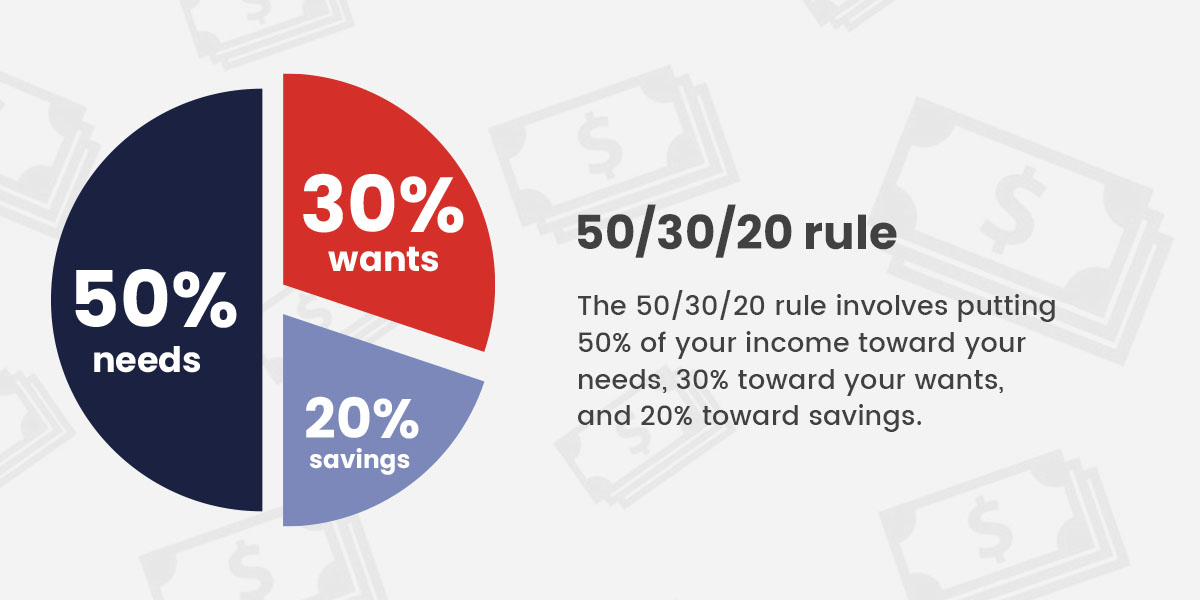
Have you ever come across a savvy tech gadget or trendy fashion item advertised by your favorite influencers on social media and thought, "I have to buy this!"? Without a second thought, you find yourself buying the item, and two days later, you start to feel regret. Or maybe you spend based on your emotions and buy yourself a gift out of celebration or to cheer yourself up.
Welcome to the world of impulse buying. You'll know you're spending impulsively if the excitement fades fast and your purchases don't contribute to your long-term financial goals and life plans. Let's explore why impulse spending happens and what you can do to reduce your impulse purchases.
Why Do We Impulse Buy?
Impulse buying causes people to spend money without thinking about the financial consequences of the purchase. Most believe emotions and a lack of self-control motivate this habit. In reality, four main factors could cause us to impulse buy:
- Emotions: When you're feeling down, sometimes you think buying yourself a little something can make you feel better. Still, making decisions based on emotion gives your brain permission to let impulse spending take over.
- Past experiences: In some circumstances, adults may have neglected to teach their children how to handle money when they were younger. Thus, they end up handling it the way they saw adults do it in their household while growing up.
- Perceived good deals: Impulse buying is more likely to happen when you believe you can get a good quality product for a significant discount or without shipping fees. Many people avoid making a purchase when they have to pay for shipping.
- Love of shopping: When buying things that make you happy, you feel satisfied every time you make a purchase. Making many of these purchases might cause you to develop a shopping addiction, so it's important to stay mindful about how much you go shopping.
How to Stop Impulse Buying
Sometimes, the money we spend on impulse buying could have gone towards more important goals, like paying off debt or saving for a financially secure future. Here are five tips and practices you can implement to stop impulse spending.
1. Make a Budget and Stick to It
It's easy to make unplanned purchases without a set money management plan. A budget helps you only make purchases that fit within your financial situation and goals. A famous budgeting technique is the 50/30/20 rule. The 50/30/20 rule involves putting 50% of your income toward your needs, 30% toward your wants, and 20% toward savings.

Dedicate these portions to specific spending areas to account for all the essentials and avoid unplanned purchases. Spending 30% on your wants allows you to make impulse purchases so long as it's within your budget. It might help to use a money management app to track your monthly expenses and savings.
2. Add Space Between Impulses and Purchases
Since it's easy to make an impulsive purchase — especially now that online shopping exists and simply requires a few clicks to buy something — it's important to give yourself a day or two to think about the purchase you want to make.
Is it reasonable for you to buy right now? Why do you need the product? What happens if you don't buy the product? Is there something more important you could spend this money on? Ask yourself these questions during this waiting period to ensure you make a reasonable purchase. Waiting can let the initial excitement fade and allows you to reconsider buying the product with a neutral mindset.
3. Don't Shop Alone or When You're Emotional
If you have a friend or sibling who is honest and tells you when a purchase is unnecessary, it might help to bring them with you when you go shopping. Before you head out, tell them what you plan to buy and to reason with you when you stray from your budget and shopping list.
Otherwise, you might join an accountability group either online or in person as a safe space to share your goals and progress with other impulse buyers. This gives you a sense of responsibility to follow through with your commitment.
Additionally, make sure to avoid spending in the thrill of the moment or because you had a bad day. Emotional spending might lead you to feel regret later. Taking someone with you might help you avoid unreasonable emotional spending, or you could ask yourself whether it's really something you need before purchasing.
4. Try Fun Challenges Like No-Spending
The no-spend challenge involves dedicating a certain time period and amount to spend only on essential living expenses. This means avoiding any nonessential purchases. For instance, you'll avoid spending on new clothes, going to the movies, and visiting restaurants. Instead, you can spend your money on utilities, rent or mortgage, groceries, and other critical expenses.
If you have any money left over, you might put it toward your savings account or pay off student loans or other debt. This challenge helps you practice prioritization, responsible spending, budgeting for unexpected expenses, and saving cash.
5. Unfollow Accounts That Influence Impulse Purchases
Often, seeing flashy ads and influencers promoting the latest products on social media can cause temptation to sneak in and persuade you to press that "buy now" button. Regardless of how the product will improve your life, first consider whether it will lead to financial instability or stress.
You can take numerous actions to reduce your exposure to shopping triggers. The first is to unfollow promoters and brands on social media that influence you most. You can also adjust the settings on those apps to change the type of ads and recommended posts you get on your feed.
Additionally, unsubscribe from newsletters and text alerts from your favorite retailers. Marketers for these companies know precisely which promotions to send your way based on your previous purchases, making them seem like musts for your next shopping trip. Avoid signing up for other email newsletters in the future.
Reduce Impulse Buying With Atlas Credit
If you've noticed that your buying habits are getting in the way of reaching your financial goals, you can use these tips to reduce impulse buying. If impulse buying has already affected you financially, and you need money for essential purchases like stocking up on groceries or doing repairs, consider getting a personal loan.
At Atlas Credit, we provide quick and easy-to-attain personal loans. The loan application process with Atlas Credit is generally fast and convenient. You can apply at a nearby branch, over the phone, or via an online loan application. We welcome you to fill out our online loan application for a personal loan that suits your financial budget today.



